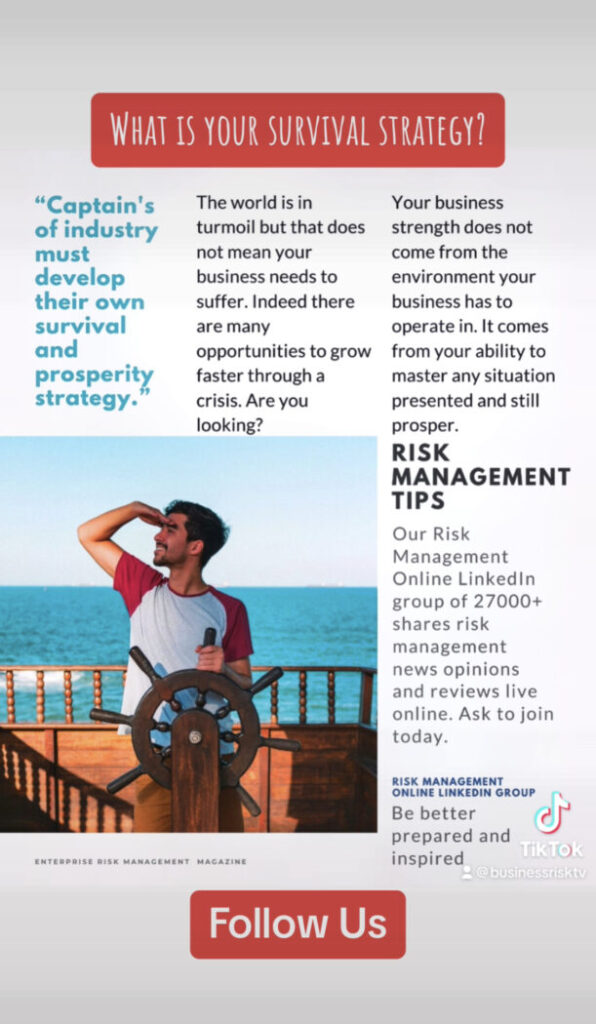Navigating the Storm: 6 Strategies for Business Growth in a Challenging US Economy
As a US economics expert, I’m here to address the concerning economic trends outlined at beginning April 2024 : millions of lost full-time jobs that there is no sign of abating, skyrocketing leveraged loan delinquencies threatening particularly regional banks survival but also creating systemic banking crisis in U.S. and around world, record office vacancies, and a freefall in commercial real estate (CRE) prices. These factors, coupled with the struggles of retail malls and an overbuilt multi-family housing market, paint a picture of a potentially turbulent economic landscape.
However, amidst this storm, there’s still room for business growth. Here are 6 key strategies business leaders can adopt to navigate these challenges and emerge stronger in 2024 and beyond:
1. Embrace Agility and Scenario Planning:
Gone are the days of rigid five-year plans. Today’s economic climate demands agility and the ability to adapt to changing circumstances. Develop several “what-if” scenarios, each outlining potential economic trajectories – mild downturn, deeper recession, or even a slow recovery. For each scenario, identify actionable steps you can take to adjust your strategy.
Here are some questions to consider when building your scenarios:
- How will changing consumer spending patterns impact your business?
- Can you adjust your product or service offerings to cater to new consumer needs?
- What cost-cutting measures can you implement if necessary?
- Are there alternative sources of funding you can explore if access to credit tightens?
By proactively planning for various scenarios, you can make informed decisions with greater speed and confidence when the economy takes a turn.
2. Focus on Building Operational Efficiency:
In a difficult economic environment, operational efficiency becomes paramount. Scrutinise your current business practices and identify areas for improvement.
- Can you streamline workflows to reduce overhead costs?
- Are there opportunities to automate tasks and processes?
- Can you renegotiate supplier contracts or explore alternative sourcing options?
Every dollar saved is a dollar you can reinvest in growth initiatives or use to weather potential downturns. Consider utilising technology solutions that automate routine tasks, freeing up your team to focus on higher-value activities.
3. Prioritise Customer Retention and Relationship Building:
In a climate with potentially declining consumer spending, retaining existing customers becomes critical. Focus on building strong, long-term relationships with your existing customer base. Here’s how:
- Implement customer loyalty programmes that reward repeat business.
- Offer exceptional customer service that builds trust and brand loyalty.
- Regularly engage with your customers, understanding their needs and adapting your offerings accordingly.
By prioritising customer retention, you can ensure a steady stream of revenue even during challenging economic times. Additionally, explore ways to expand your offerings to address unmet customer needs, potentially attracting new customers within your existing market segment.
4. Invest in Your Workforce:
Your employees are your greatest asset. In times of economic uncertainty, empowering and upskilling your workforce can provide a significant competitive advantage. Here are some strategies to consider:
- Provide ongoing training and development opportunities to ensure your team possesses the skills needed to stay ahead of the curve.
- Foster a culture of innovation and encourage your employees to think creatively about problem-solving.
- Implement performance-based incentives to motivate and reward your best performers.
A well-trained, motivated workforce is more adaptable to change and more likely to come up with innovative solutions that drive business growth.
5. Explore New Markets and Revenue Streams:
Don’t limit yourself to your current market – consider expansion opportunities, either geographically or by diversifying your product or service offerings. Here are some potential strategies:
- Research and identify new markets with growth potential.
- Develop new product lines or services that cater to emerging consumer trends.
- Explore the possibility of offering your products or services through new channels, such as e-commerce or online marketplaces.
By venturing into new markets or revenue streams, you can mitigate risk by spreading your bets and potentially tap into new sources of revenue.
6. Maintain a Long-Term Perspective:
While the current economic climate may seem daunting, it’s crucial to maintain a long-term perspective. Economic downturns are inevitable, but history shows that periods of recovery always follow. Focus on building a resilient business that can weather the storm and emerge stronger on the other side.
- Maintain a healthy cash reserve to provide a buffer during difficult times.
- Avoid taking on excessive debt that could become burdensome in a downturn.
- Continue to invest in research and development, ensuring your offerings remain innovative and competitive.
By staying true to your long-term vision and making strategic decisions for the future, you can position your business for sustainable growth, even amidst economic turmoil.
Remember:
The key to navigating economic challenges lies in adaptability, resourcefulness, and a focus on long-term strategic thinking. By implementing these six strategies, you can equip your business to not just survive in 2024 and beyond into at least 2025.
Get help to protect and grow your business
Subscribe for free business risk alerts and global risk reviews
Read more business risk management articles





